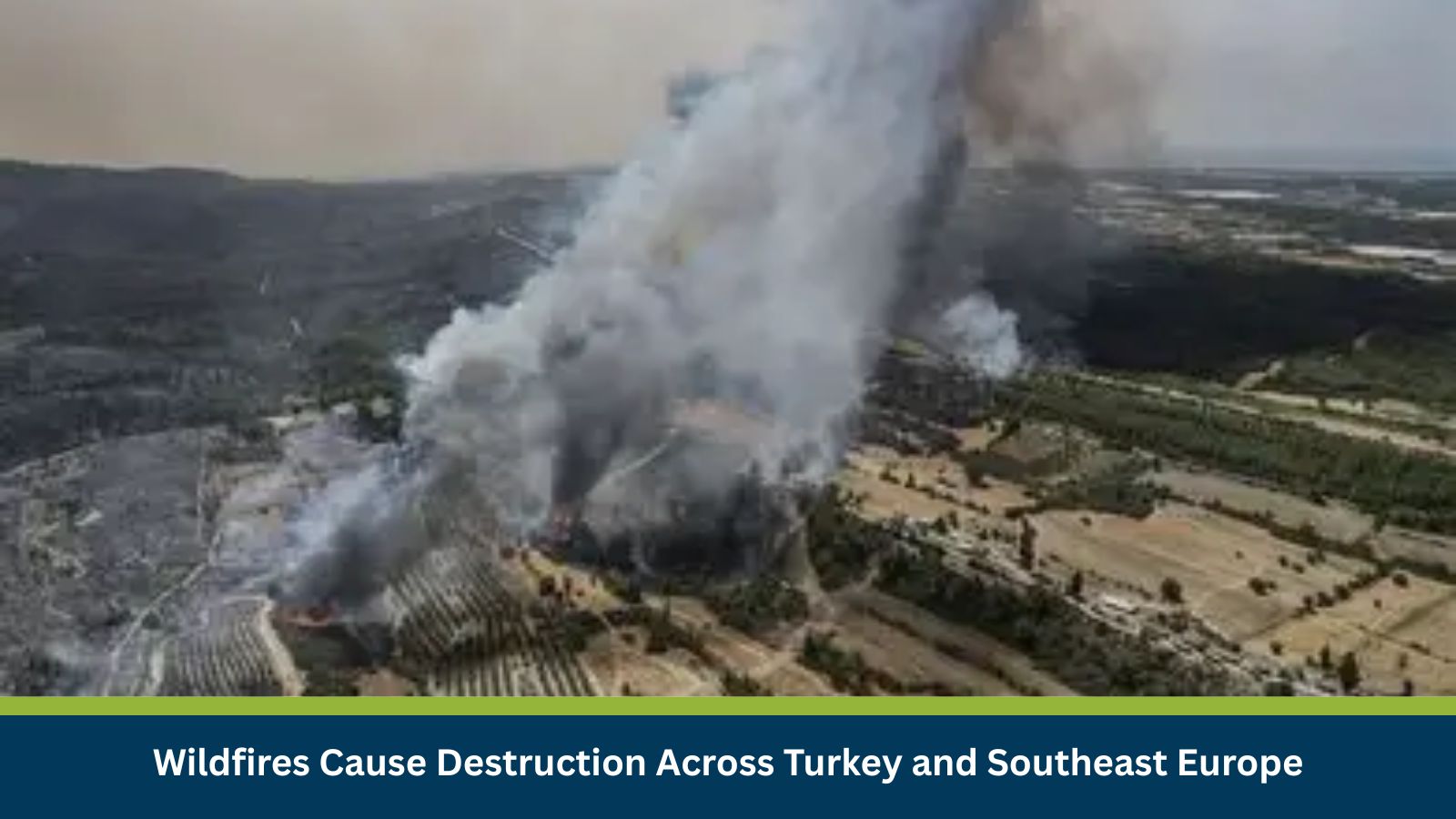A series of wildfires is sweeping across Turkey, Greece, Bulgaria, and Albania, triggering mass evacuations, infrastructure damage, and significant environmental impact.
What Is Happening in Turkey and Southeast Europe?
Since late July 2025, Turkey and parts of the eastern Mediterranean have been battling widespread wildfires, which are now threatening southern Bulgaria and the western Serbian frontier. Emergency firefighting operations using ground crews, planes, and helicopters are underway to contain the fires and protect vulnerable communities.
In Turkey, fires have erupted near Bursa, Karabük, Kahramanmaraş, and İzmir, prompting 3,500 evacuations and resulting in fatalities and injuries. Authorities declared İzmir and Bilecik disaster areas, while some municipalities, including Çeşme, imposed water-use restrictions to manage resource strain.
Why?
The record-breaking heatwave across the eastern Mediterranean has created unseasonably high temperatures and dry conditions, fueling fire outbreaks.
- Strong winds have accelerated the spread of fires.
- Human activity, including discarded cigarettes and open flames, has contributed to flare-ups.
- Arson suspects have been detained in Albania, Bulgaria, and Turkey, highlighting the human factor in worsening the crisis.
In Greece, a fire in Athens on 28 July led to road closures and water-dropping operations, while fires on Kythera, Evia, and Crete destroyed land and forced village evacuations.
In Bulgaria, hundreds of wildfires have been reported, with severe cases in Strumyani and Lesovo, prompting cross-border firefighting support from Turkey.
In Albania, fires in Delvinë, Konispol, Himarë, and northeastern regions damaged thousands of acres of land, with multiple fire incidents reported on 28 July alone.
Consequences Across Sectors and Communities
Infrastructure & Utilities
- Fires threaten power lines, telecommunications, and local facilities.
- Land and property damage is extensive, affecting both urban and rural communities.
Public Health & Environment
- Smoke and particulate matter are degrading air quality, raising respiratory health risks for vulnerable groups.
- Agricultural land and forests are experiencing severe losses.
Transportation & Business Continuity
- Road closures and localized travel restrictions have been enforced.
- Businesses in affected areas face supply chain disruptions and temporary shutdowns.
Medium-Term Outlook
High temperatures and dry winds are expected to persist, complicating firefighting efforts and raising the risk of new fires. Authorities warn that full containment may take several days.
Organizations with operations or travel plans in the region should:
- Monitor official advisories and weather alerts
- Review employee and asset safety measures
- Implement business continuity and contingency plans
Stay Ahead of Threats with datasurfr Predict
MitKat’s datasurfr delivers accurate, real-time, and contextualised data to help organisations respond swiftly to physical, environmental, and cyber threats.
With datasurfr Predict, our AI Agent not only provides context for unfolding events but also analyses vetted historical data to forecast how events are likely to evolve and their potential impact using industry and location-specific probabilistic scores.
Book a free demo today and see how datasurfr Predict can transform your risk preparedness: https://mitkatadvisory.com/why-datasurfr/






